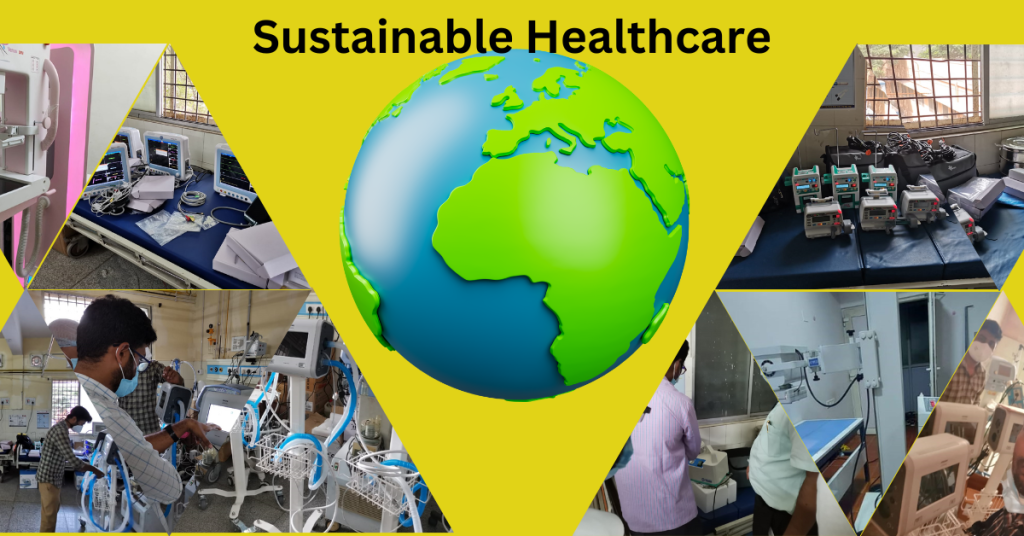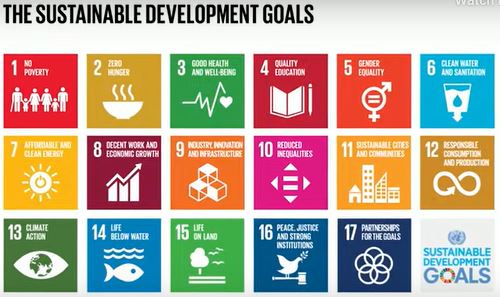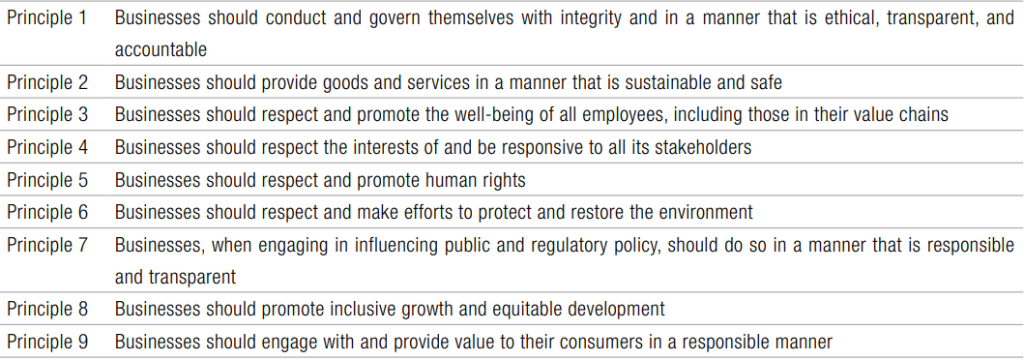
Hospitals have always been big contributors to the social-well being of the society. Healthcare providers not only take care of our health but also provide employment to large number of people. However, the question today is – are they doing so without causing harm? Let us look at what it means for the hospitals and other healthcare providers to deliver sustainable healthcare.
What does Sustainable Development mean for healthcare providers?
‘Our Common Future’ – also known as ‘The Brundtland Report’ defines Sustainable development as follows:
“Sustainable development is development that meets the needs of the present without compromising the ability of future generations to meet their own needs.”
This essentially means that while we pursue economic growth, it cannot be at the cost of the planet and people of today and the future generations. There are many buzz words floating around and some have come to be synonymous with ‘sustainability’ e.g. Net Zero, Carbon Neutral, Carbon footprint, ESG , Climate change, biodiversity loss, Circular Economy, Global warming and so on an so forth. Most of these terms though, just emphasize the ‘Environment’ dimension of sustainability.
Sustainable development is a far broader term.
What it means for businesses is that they not only need to mind their Green House Gas emissions and other activities causing air, water and land pollution in general. They actually need to contribute to the social wellbeing, education and health of people in their employ and society in which they operate. They also need to adopt strong Governance and fair business practices. Only then would they be considered Sustainable and ESG (Environment, Social & Governance) compliant. So, what is ESG compliance?
UN Sustainable Development Goals
The 2030 Agenda for Sustainable Development, adopted by all United Nations Members in 2015, has enumerated the 17 Sustainable Development Goals (SDGs). The 17 SDGs are an urgent call for action by all countries. The 2030 Agenda is a plan of action for people, planet, prosperity and peace. The 17 SDGs by and large correspond to the ESG (Environment, Social & Governance Framework) at a global level and have provided the foundation for several frameworks of ESG reporting and initiatives across the world. It is not possible to achieve these sustainability goals without everyone on the planet contributing to it.
Needless to say, healthcare industry has a key role to play in ensuring a sustainable future for the planet.

Sustainable healthcare – What is really relevant for healthcare providers?
For most healthcare providers in India, the issue of incorporating ‘sustainable’ practices into their operations may appear to be a long-term concern, if not optional. It would seem nothing is urgent at present. Is this true? Let us look at the how the regulatory scenario is unfolding globally and in India. This will help us understand what is coming.
Joint Commission accreditation standards for Sustainable Healthcare
Joint Commission International (JCI)’s range of standards currently includes topics such as clinical care, patient safety, leadership, and facility management and safety. The addition of environmental sustainability standards in the new Global Health Impact Chapter of JCI’s Accreditation Standards for Hospitals, 8th Edition, available by mid-2024, will support the healthcare sector worldwide to address carbon reduction and ensure environmentally sustainable healthcare delivery in the future.
The JCI sustainability standards will focus on five areas including governance, employee engagement, procurement practices, infrastructure, and use of environmental resources.
There are about 30 hospitals in India which are accredited by Joint Commission (JCIA). If one thought, these sustainability standards concern only them, think again. In India Securities & Exchange Board of India (SEBI) has introduced Business Responsibility & Sustainability Reporting (BRSR) in the year 2021 and National Accreditation Board for Hospitals (NABH) is updating its Accreditation Standard for Hospitals in the 6th Edition (in 2024), to include Sustainability goals.
BRSR (Business Responsibility & Sustainability Reporting)
SEBI has mandated the top 1000 listed businesses in India (based on market capitalization) to submit the BRSR starting for fiscal year 2022-23. Less than 30 healthcare provider entities may be listed among the top 1000 as of now, but they manage more than 3000+ hospitals, diagnostic centre and Clinics, making huge impact on the society. In time, the reporting and disclosure requirements are only expected to expand and become more stringent.
The BRSR format adopts the United Nations Sustainable Development Goals (UN-SDGs) and is comparable to other global ESG reporting frameworks such as Global Reporting Initiative (GRI), Task Force on Climate-Related Financial Disclosures (TCFD), etc. The BRSR format consists of the following 9 Principles.

National Accreditation Board for Hospitals (NABH)
Currently there are over 1350+ NABH accredited hospitals, 8000+ Laboratories in India. All of these and many more healthcare providers aspiring to get the NABH accreditation in future need to ensure sustainable healthcare delivery.
NABH is updating its Accreditation Standard for Hospitals in the 6th Edition, to include under ‘Responsibilities of Management’, the following:
“ROM 3 – Management ensures sustainability in hospital by addressing environmental, social and economic factors from long term well-being of healthcare system and community.”
So, what are the areas in focus for sustainable healthcare today?
Present areas of focus for Sustainability in healthcare
Large hospitals consume lots of energy/ electricity and generate tremendous amounts of waste, including hazardous waste, polluting the environment. The following areas are therefore focus for sustainability initiatives and regulatory thrust:
- Energy management – Reducing energy consumption ( especially based on fossil fuel)
- Waste management – Recycle more, minimize waste going to landfill/ incineration.
- Air quality management – Reduce greenhouse gases emission and carbon footprint
- Water management – not release untreated water waste
Sustainable healthcare translates into providing healthcare with minimal damage to environment we live in today and for future generation.
—————————————————————————————————————————
PrimedeQ is an e-Marketplace for buying, selling, renting, servicing and spares of medical equipment. We offer all types of used / refurbished medical equipment , including cathlab, ECG machine and other diagnostic equipment, endoscopes, OT equipment, Laparoscopic Equipment, Lab equipment, X-Ray, TMT, anesthesia machine, ultrasound machines etc including physiotherapy and rehabilitation equipment (New & Used). We offer repair services for all types of medical equipment.
Contact us for any medical equipment requirements on 7019759765.
https://in.linkedin.com/in/shanthi-mathur-ab07838
